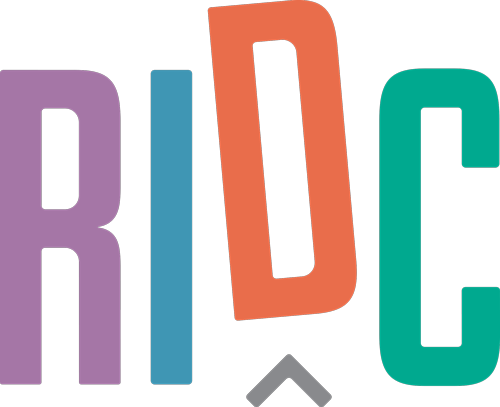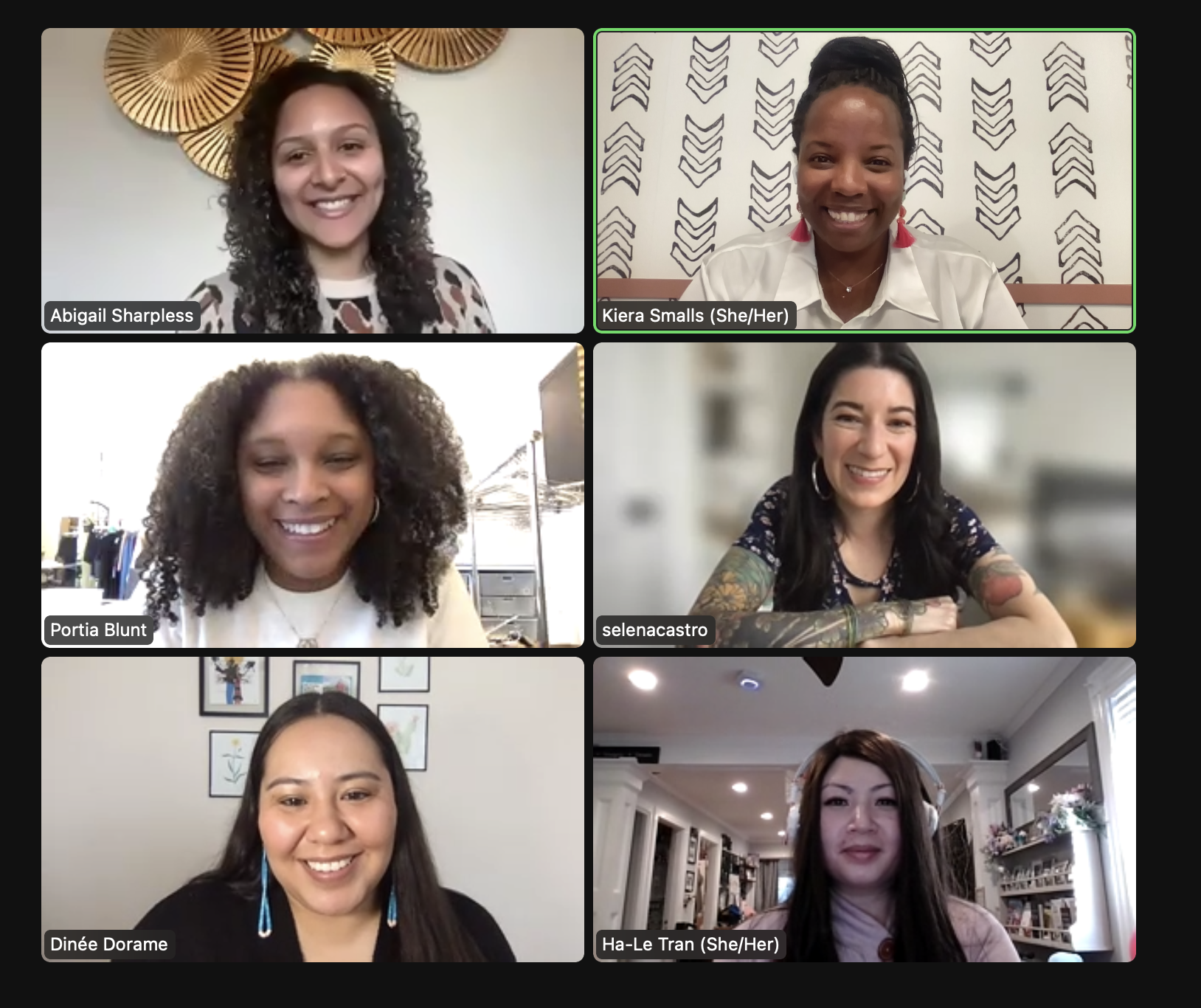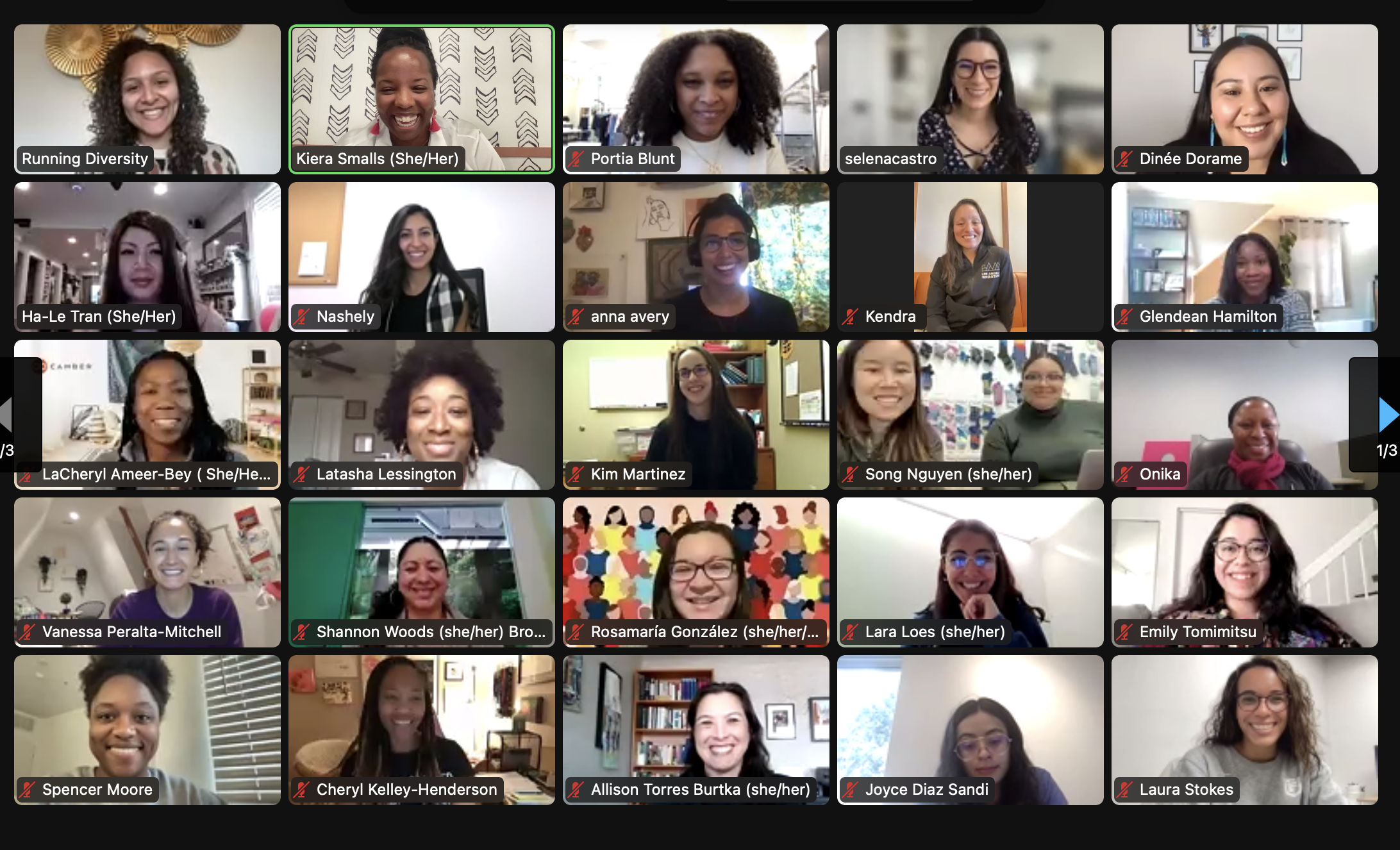Removing The Gatekeeping
Career Opportunity and Advancement for Women of Color in the Running Industry:
Last year, we hosted our first closed workshop of the year, 'Removing the Gatekeeping: Career Opportunity and Advancement for Women of Color in the running industry.’ It was a space created specifically for BIPOC women, to inspire, celebrate, and connect. Whether you missed the workshop or just want a refresh, we hope the below words from our panelists will inspire you!
This effort is part of our strategic objective to increase BIPOC professionals, leaders, and owners in the industry. We hosted a virtual panel for the first year and had 200 RSVPs. Stay tuned for year two!
Clockwise from top left:
Abigail Sharpless, Program Manager at RIDC
Kiera Smalls, Executive Director at RIDC
Selena Castro, Sports Marketing Specialist
Ha-Le Tran, GTM Process Manager at New Balance
Dinee Dorame, Community Activist and host of the Grounded podcast
Portia Blunt, Vice President of Apparel at Reebok
When you find yourself in rooms where you are the only one, What comes up for you and how do you navigate that?
Ha-Le: A rule of thumb that has helped me with staying grounded and present in meetings is confirming my value in any meetings I am invited to. Knowing why you are invited is just as important as attending anything you are invited to. Your time is valuable just like everyone else in attendance. Knowing your own value and what you bring to the table helps boost your confidence which in turn boosts your voice and presence. Believing in yourself and your worth carries into how you project yourself to others, how you navigate the known and unknown and how you show up prepared.
Selena: I can recall one time in particular that illustrates this question, and it was during the time I coached a low-income high school track and field team that was made up of primarily hispanic kids (we were the only school with a dirt track to practice on). It was my first year as a high school running coach, and I was invited to the local league’s all-coaches meeting to discuss the upcoming season. I was one of two women in the room, and by far the youngest person, by at least a decade from most! I immediately felt out of place as soon as I walked in. I stood out, but I wanted to be invisible; it was one of those pivotal moments that tested my confidence. The best thing I could do in that moment was sit there and at least pretend to look like I knew what was going on.
As the meeting progressed and as I heard all these men talk over each other, something in me shifted. I was there because I was a voice for the kids I coached. The coach that was before me looked like the rest of them, and didn’t advocate for the team anymore because he had given up. It was clear none of the other coaches took the school or the team seriously. It’s like we just took up space to help the other teams place higher. But my team deserved more, they deserved to be taken seriously, and I had to speak up for them.
And so I think about this situation often when I find that I’m the only one in the room. I remember I’m there to represent or speak for those who can’t. In some way, I am there to fight for others who deserve to be seen and taken seriously. And that gives me the confidence to be there, because others need me to be.
What are some of the greatest challenges you’ve experienced working in the running industry or in your particular role?
Dinee: ‘It’s a really isolating space, like my colleagues are other mainstream podcasters, most of whom are white. I did not anticipate how isolating that experience would be, to understand myself as a non-white podcaster.
And I realize when I go to big events or am on panels, a lot of people I’m working with are white. But that didn’t feel like what was being reflected to me and my audience and my guests, and what I was experiencing on the show. So it felt like I was living in two different spaces at the same time, like I was seeing this space for indigenous women in the running community and working for indigenous causes, and then on the flip side, I’m meeting all of these people who have no idea what’s going on over here. And so I felt like I was sort of working on this bridge all the time, that was just very lonely.
Not a single brand reached out to me, I’ve never received any offers for support past personal contract work I’ve done for New York Road Runners. Those were immediate challenges…everyone wants to tout me around as a native podcaster, you know, use me in the space to look nice, but ultimately there wasn’t a lot of brands that wanted to sponsor the show, I think there wasn’t a lot of longevity seen in my show because I did focus more on indigenous populations and people of color. I always felt like I was having to advocate for my show and push it out there, and it felt like I wasn’t taken seriously.'
Portia: ‘Breaking out of the box that they put you in, that to me has been a career challenge that I find is hard to overcome. When I came in to the industry I came in to build and manage military business, and it took a lot of effort and resilience on my part to push beyond what everyone was comfortable positioning me as. If I had a desire to want to learn something else, try something else, extend myself to another project, I really had to fight for that.
Don’t resign yourself to the box that the industry, your peers, your superior, your bosses, put you in. You’ve got to really advocate and voice your own desires and chart your own path the best way that you can. It may be unscripted, it may take several zigzags and pivots. It’s not always a straight line, but being aware of that and knowing that you’re being boxed in to doing just running, or just marketing, or just sales…push against that. The world will limit you, as long as you don’t limit yourself, you can push beyond what’s in front of you.’


